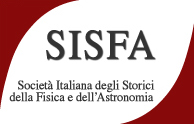Speaker
Description
A heavy launch vehicle Proton carrying the International Gamma-Ray Astrophysics Laboratory INTEGRAL was launched from Baikonur Cosmodrome on 17 October 2002. The project had been developed by the European Space Agency (ESA) for more than 10 years. INTEGRAL required an Arian 5 rocket, the cost of which became ever more problematical and which would not be available until the late 1990s. Russians offered their Proton rocket since their own observatories were nearing the end of their working life and with no money to fund new missions. Rather than charge a launch fee for Integral, Russia offered a free launch in exchange for 25 percent observing time.
Russian scientists called INTEGRAL the first Russian National Observatory. This meant that any Russian researcher could apply for a specific observation in a bid organised by ESA. Specifically for the INTEGRAL project, the Russian Scientific Data Centre was established at the Space Research Institute of the Russian Academy of Sciences in 1997 to receive, store, primarily process and disseminate among Russian scientists the scientific information obtained during the experiment.
I will analyse this case study from a geopolitical perspective by placing it in the broader context of Russian-European cooperation in space, of the political situation in Russia during the transition period and, finally, of the socio-economic consequences of the collapse of the USSR. This presentation is a part of the larger research on Soviet/Russian-European relationship based on ESA Archives, Soviet and Western free press, memoirs, and interviews with testimonies.

